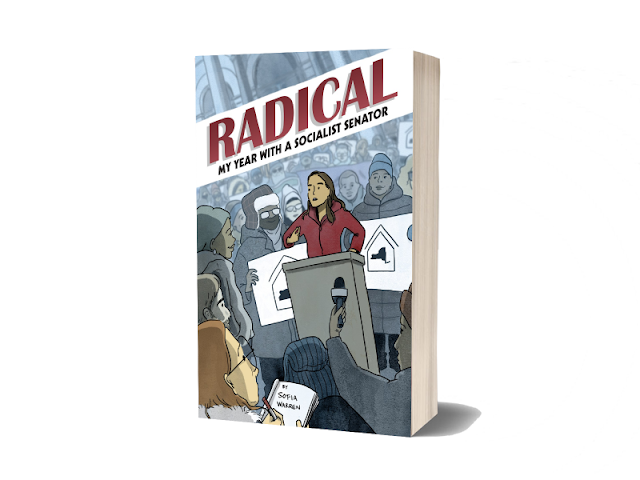Adam Grant's "Originals" And The Secret Of Geniuses
Originals' depth of analysis gives it a high rereading value.
There are some kinds of books you take your time to read. You linger at a paragraph, think about a sentence, read on, then close the book and think again... with Non-Conformists
Writing a review can be a pain, especially when it is about books I enjoy reading. This is because there are many points of interests competing for attention. Deciding which one to write about can be frustrating, at least for me.
"Originals" is a book that examines creativity, the psychology behind great art and inventions, the relationship between age and creativity, and similar topics. For example, when discussing what differentiates great creative geniuses from their counterparts, the author concludes that a lot of great creative geniuses maintain a larger body of work than their lesser peers. In almost every field of art, science and technology, people who have accomplished great things do more projects than most of their fellow workers. The author writes:
Shakespeare produced 37 plays and 154 sonnets, yet we know him for just a handful of plays like Macbeth, The Merchant of the Vernice, Othello, and a few others. Meanwhile plays like All's Well That Ends Well and Timothy Of Athens are comparatively poorer works and very few people reckon with them. Picasso's body of work includes "...

Also, "Originals" debunks the theory that creativity declines with age. The author says this depends on an individual's style of thinking. On one side are conceptual thinkers and on the other side are experimental thinkers. Conceptual thinkers operate through the help of sudden bolts of inspiration. While experimental thinking involves working or feeling your way through a solution. The author explains that "...conceptual
"Originals" states that it is better to adopt an experimental type of thinking to have a better chance of maintaining or increasing your level of creativity at an old age. He writes:
"Originals" is full of counterintuitive ideas and theorieson
Many thanks toPenguin Random
Writing a review can be a pain, especially when it is about books I enjoy reading. This is because there are many points of interests competing for attention. Deciding which one to write about can be frustrating, at least for me.
"Originals" is a book that examines creativity, the psychology behind great art and inventions, the relationship between age and creativity, and similar topics. For example, when discussing what differentiates great creative geniuses from their counterparts, the author concludes that a lot of great creative geniuses maintain a larger body of work than their lesser peers. In almost every field of art, science and technology, people who have accomplished great things do more projects than most of their fellow workers. The author writes:
on average, creative geniuses were not qualitatively better in their fields than their peers. They simply produced a greater volume of work, which gave them more variation and a higher chance of originality. ...
Shakespeare produced 37 plays and 154 sonnets, yet we know him for just a handful of plays like Macbeth, The Merchant of the Vernice, Othello, and a few others. Meanwhile plays like All's Well That Ends Well and Timothy Of Athens are comparatively poorer works and very few people reckon with them. Picasso's body of work includes "

Also, "Originals" debunks the theory that creativity declines with age. The author says this depends on an individual's style of thinking. On one side are conceptual thinkers and on the other side are experimental thinkers. Conceptual thinkers operate through the help of sudden bolts of inspiration. While experimental thinking involves working or feeling your way through a solution. The author explains that "...
"Originals" states that it is better to adopt an experimental type of thinking to have a better chance of maintaining or increasing your level of creativity at an old age. He writes:
to sustain our originality as we age and accumulate expertise, our best bet is to adopt an experimental approach. We can make fewer plans in advance for what we want to create, and start testing our different kinds of tentative ideas and solutions. Eventually, if we're patient enough, we may stumble onto something that's novel and useful. ...
The experimental approach served Leonarda da Vinci well: he was forty-six when he finished painting The Last Supper and in his early fifties when he started working on the Mona Lisa. "Only by drawing did he truly come to understand, was his vision clarified," one scholar wrote; another observed that "Leonardo works like a sculptor modelling in clay who never accepts any form as final but goes on creating, even at the risk of obscuring his original intentions."
"Originals" is full of counterintuitive ideas and theories
Many thanks to




Comments
Post a Comment